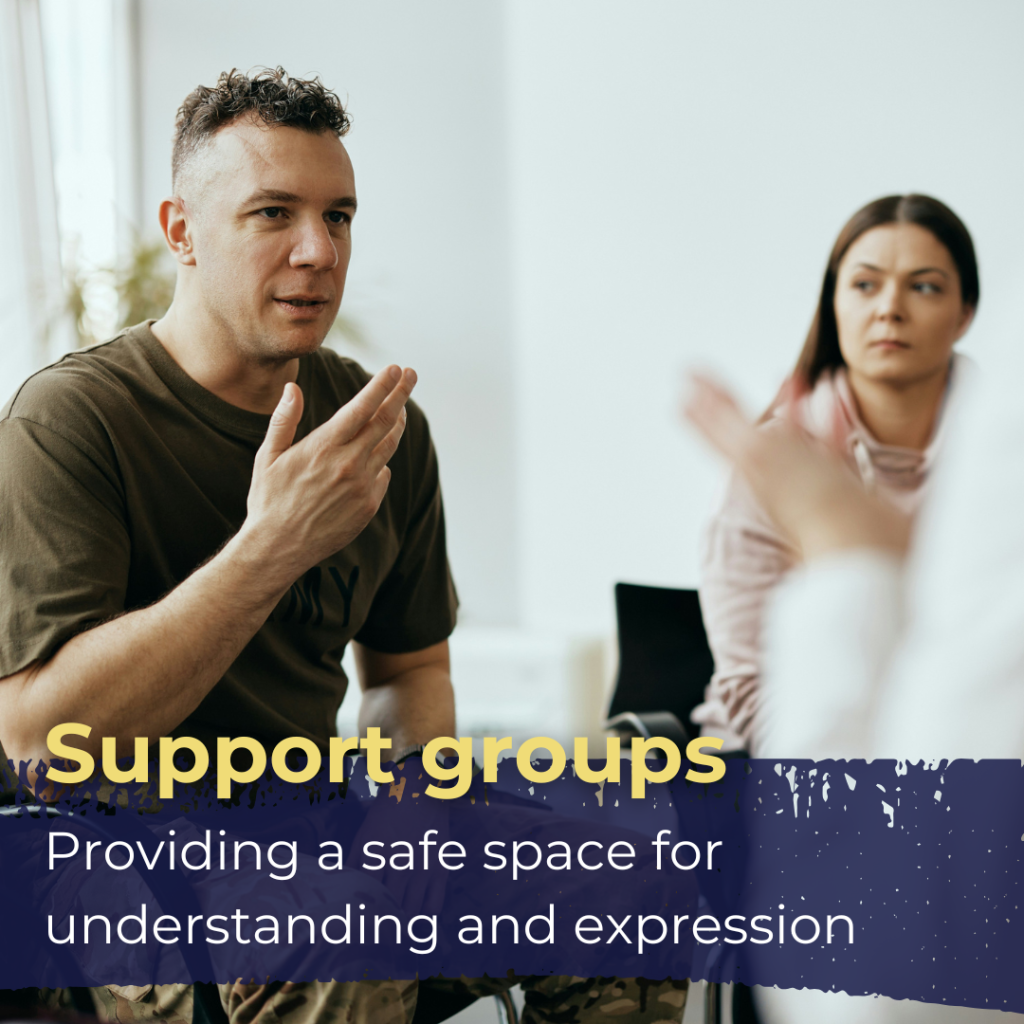For Veterans, Mental Health is a Battle We Can Help With
Veterans have made unique sacrifices, often facing challenges few can fully understand. Although they may return home from battle, many continue fighting silent, personal battles every day. For countless veterans, the impact of service extends beyond physical injuries and includes profound mental health struggles. Conditions like PTSD, depression, and anxiety can linger long after active… Read more

Reviewed by The PsychPlus Team
November 11, 2024

Veterans have made unique sacrifices, often facing challenges few can fully understand. Although they may return home from battle, many continue fighting silent, personal battles every day. For countless veterans, the impact of service extends beyond physical injuries and includes profound mental health struggles. Conditions like PTSD, depression, and anxiety can linger long after active duty ends, affecting daily life and relationships. Honoring their resilience means recognizing that for many, the fight isn’t over—mental health can be one of their hardest battles.
It’s essential to acknowledge and address these mental health challenges, especially on Veterans Day, a time to not only honor their service but also to recognize the battles they continue to face. Understanding and supporting veterans’ mental well-being can make a meaningful difference. This Veterans Day, let’s explore how we can contribute to their mental health journey and offer resources that make a difference.

The Reality of Mental Health Challenges for Veterans
For many veterans, mental health challenges become a significant part of their post-service lives. Experiencing trauma during active duty, such as combat or exposure to high-stress situations, often leaves lingering psychological effects. Three of the most common issues veterans face are Post-Traumatic Stress Disorder (PTSD), depression, and anxiety:
- PTSD and Its Impact
PTSD affects roughly 20% of veterans who served in recent conflicts, manifesting as intrusive memories, nightmares, flashbacks, and heightened reactivity. These symptoms can severely impact daily functioning, relationships, and even a veteran’s ability to hold a job or manage routine tasks. Unlike some mental health conditions, PTSD is directly linked to the traumatic events many veterans experience, creating a unique challenge that calls for targeted treatment approaches.
- Depression and Isolation
Veterans also have high rates of depression, which can arise from a combination of factors: lingering trauma, physical injuries, and the difficulties of adjusting to civilian life. Depression in veterans is often accompanied by a sense of isolation or disconnection, as they may feel that others cannot relate to their experiences. This can lead to feelings of hopelessness and, in severe cases, even thoughts of self-harm or suicide.
- Anxiety and Hypervigilance
Anxiety, including generalized anxiety and panic disorders, is another prevalent mental health challenge for veterans. Constant hypervigilance—a heightened state of alertness developed during military service—often persists and can make it difficult for veterans to relax. Everyday scenarios can trigger intense stress responses, creating a significant obstacle in veterans’ lives as they strive for normalcy.
For veterans facing these battles, finding the right support can be challenging. For compassionate, professional assistance tailored to veterans’ mental health needs, explore PsychPlus, where our team is dedicated to helping veterans reclaim a sense of peace and purpose.
How to Recognize Signs of Mental Health Struggles in Veterans
For anyone who wants to support a veteran, recognizing early signs of mental health challenges can be crucial. Here are key symptoms to watch for, along with practical tips for early intervention:
Withdrawal from Social Activities
Veterans struggling with mental health may start withdrawing from friends, family, and social activities. This isolation often stems from feelings of disconnection or difficulty relating to others. Encourage social interactions by suggesting low-pressure activities or just spending quiet time together.
Mood Swings and Irritability
Sudden mood changes, irritability, or even anger can be signs of underlying issues such as PTSD or depression. Mood swings are often triggered by stress or certain memories and can make daily interactions difficult. Staying patient and understanding during these episodes can help the veteran feel supported.
Emotional Numbness
Veterans may sometimes appear emotionally distant or numb, unable to express or feel emotions as they once did. This can be a protective response to trauma but often leaves them feeling detached. Letting them know it’s okay to talk about their feelings without judgment can make a big difference.
Difficulty Connecting with Others
Veterans may feel that civilians cannot understand their experiences, leading to a reluctance to connect with those around them. Offering a listening ear and showing empathy can help bridge this gap and make them feel more comfortable.
Anxiety and Hypervigilance
Some veterans remain on high alert long after leaving a combat environment. Look for signs of excessive caution or a tendency to scan their surroundings. Creating a calm, safe environment can help reduce stress and reassure them.
Sleep Disturbances
Sleep problems, such as insomnia or nightmares, are often symptoms of PTSD and anxiety. Poor sleep can exacerbate other mental health symptoms. Suggesting they talk with a mental health professional can lead them to resources for managing sleep issues.
Recognizing these signs and understanding their impact can be a powerful step in providing support. If you’re looking for more information on mental health symptoms and helpful resources, check out Depression 101: Understanding Symptoms, Seeking Help, and Finding Support for a deeper dive into these topics.
Practical Ways to Support Veterans’ Mental Health
Encourage Open Conversations
One of the best ways to support a veteran’s mental health is through open, judgment-free conversations. Listening, validating their experiences, and offering a safe space can make a significant impact.
Guide Them to Resources and Professional Help
Connecting veterans with accessible mental health resources can be life-changing. PsychPlus provides services designed for veterans, offering a range of therapy and counseling options.
If you or a loved one is ready to take the first step, Book an Appointment with a trusted mental health professional. Remember, seeking help is a sign of strength, not weakness.
Treatment Options for Veterans at PsychPlus
PsychPlus offers a variety of mental health treatments designed to address veterans’ specific needs, from individual counseling to more specialized approaches. Cognitive Behavioral Therapy (CBT), for example, has shown great effectiveness for treating PTSD and anxiety. In some cases, alternative treatments such as Transcranial Magnetic Stimulation (TMS) may be recommended for depression or anxiety, providing options beyond traditional medication.
For specialized assistance, PsychPlus also offers referral services to ensure veterans receive the exact support they need. Visit our Referral Page to learn more about the available options.

How Friends and Family Can Show Support
Supporting a veteran’s mental health journey often involves friends and family members, too. Understanding veteran-specific mental health challenges can help loved ones become better allies.
Encouraging veterans to engage in healthy activities, like social events, exercise, or mindfulness practices, can also make a difference. For more mental health tips, our PsychPlus Blog offers articles on a variety of helpful topics to support veterans and their families.
Conclusion
Mental health support is crucial for our veterans, who continue to demonstrate resilience and strength in the face of adversity. This Veterans Day, let’s take the time to show our gratitude by supporting their mental health journey. Whether it’s encouraging open conversations, recognizing early signs, or guiding them to resources, each step matters.
If you or someone you know could benefit from compassionate mental health care, don’t hesitate to book an appointment. At PsychPlus, we’re here to support veterans with the respect, care, and understanding they deserve.
Find a mental health care provider near you
Learn about the conditions we treat


